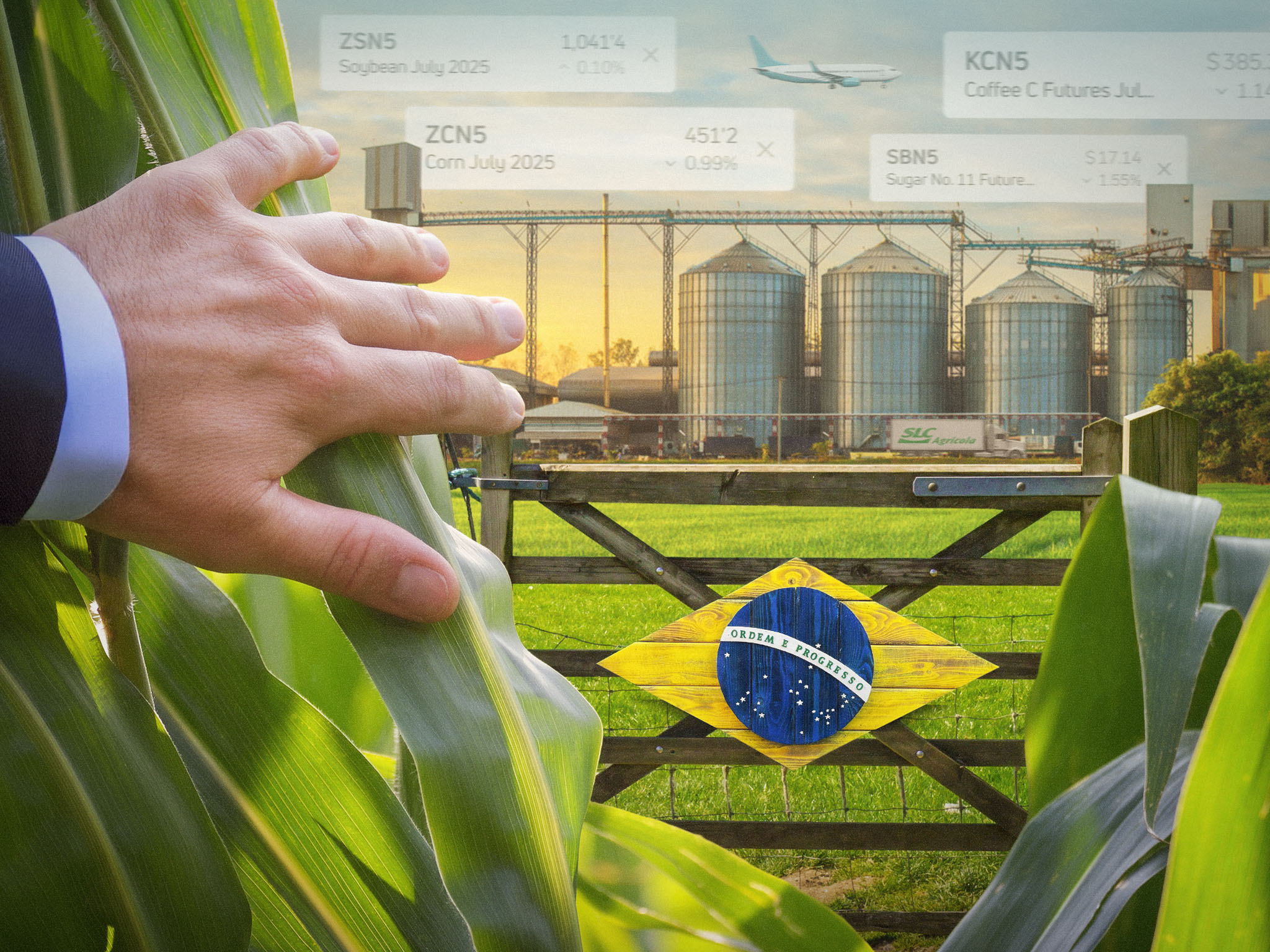São Paulo-based BTG Pactual (B3: BPAC11)—already one of the largest financial conglomerates in Latin America—is aiming to jump on the wave of surging agricultural exports from Brazil to expand its business and rival well-known commodity trading houses like Cargill and Bunge (NYSE: BG). It’s all part of a bold plan envisioned by chair André Esteves to position the investment bank and wealth manager as a regional hub and “port of entry and port of exit.”
“BTG can provide for its clients a service from the farm gate to delivery to a Chinese buyer, or an Arab buyer in Abu Dhabi, or in India…a service which is as competitive or more than the big trading houses,” he said in a recent interview with the Financial Times. “I see a very big expansion happening in Asia in terms of the commodities world.”
Even amid ongoing M&A activity and after reporting record revenue and net income last year, it’s easy to see why BTG would want to further expand into the booming agriculture sector in Brazil—which Esteves says he expects to supply 80% of the additional food that will be needed around the world over the next twenty years. The South American country, already one of the largest food producers in the world, has been continuing to see agribusiness shipments hover near all-time highs and in March sent goods abroad worth $15.6 billion, nearly 54% of countrywide exports.
“The March results underscore the growing international strength of Brazilian agribusiness, even amid rising global trade tensions,” Secretary of Trade Luis Rua said in a statement.
Trade as an economic buffer
Over the past year, Brazil’s Ministry of Agriculture has highlighted a number of agreements that expanded its market access for products like beef in Vietnam, poultry in Malaysia, livestock in Turkey and citrus in India. According to the US Department of Agriculture’s Economic Research Service, Brazil—the fifth-largest country in the world by land area and seventh by population—is one of a few geographies capable of increasing both agricultural areas and yields.
“Brazil has made a remarkable transformation from being an exporter of tropical agricultural products—such as coffee (ICE: KCN5), sugar (ICE: SBN5), and cacao in the 1960s and 1970s—to becoming a major global supplier of soybeans (CME: ZSNG), soybean products, corn (CME: ZCN5), cotton, sugar, coffee, orange juice, meat and ethanol since the early 21st century,” it wrote in a report. “Brazil is now an important agricultural competitor of the United States in international markets for many of these commodities.”
Indeed, as the US is engulfed in trade negotiations around the world after implementing wide-ranging, across-the-board tariffs last month, many have speculated that Brazil could be one of the biggest beneficiaries. That all makes Esteves’ plan to expand its foothold in commodity trading seem like a solid bet, especially as the country’s famously complicated bureaucracy and intertwined political sphere can make a Brazilian company hard to beat in Brazil. It’s a competitive sector, however, and in addition to other international players like Archer-Daniels-Midland (NYSE: ADM) and Louis Dreyfus Company, there are many domestic firms already involved including SLC Agrícola (B3: SLCE3).
Currency risk remains
Ratings agency Fitch upgraded its outlook on BTG late last year to positive from stable, citing its improving business diversification, well-managed lending risks, improved asset quality and prudent liquidity management. But as any Brazil watcher knows, the broader economy can be known to quickly swing from hot to cold, and the country has a habit of getting in its own way sometimes. While the Deloitte Global Economics Research Center expects weak government finances to contribute to stronger inflation and drag on GDP growth this year, it said expanding trade will be a bright spot even as consumer strength fades. Presidential elections scheduled for 2026, meanwhile, will almost guarantee a tumultuous year ahead.
It’s exactly that macro uncertainty that any BTG investor will want to keep top of mind. Shares in the company, for example, rose 6% over the past year, but the Brazilian reais they’re priced in fell 11% against the US dollar across the same period.
With a longer horizon, the currency risk tends to average out. BTG shares gained nearly 300% over the past five years while the S&P 500’s rose 92% and the real—while volatile—was essentially flat. That means the “Goldman Sachs of the Tropics” has outperformed peers both at home and abroad in the longer run even as currency swings added a very significant level of complexity for anyone with a shorter time frame. BTG is revving up a powerful engine and the destination is clear, but in Brazil even the best of drivers should expect some unforeseen potholes—or a landslide—along the way.




Comments